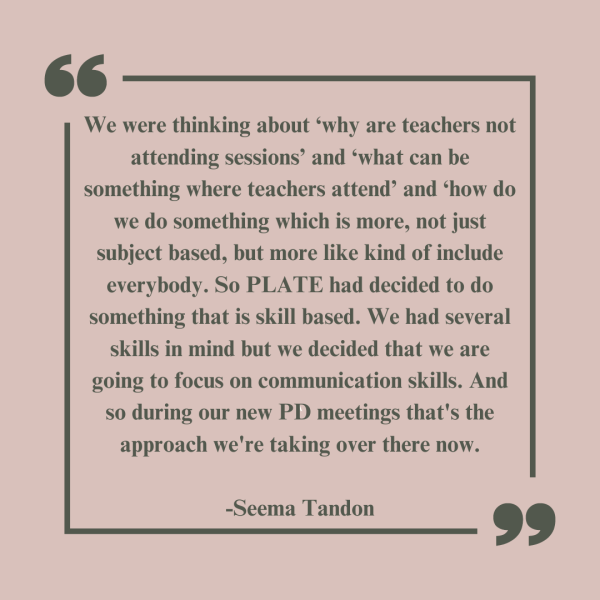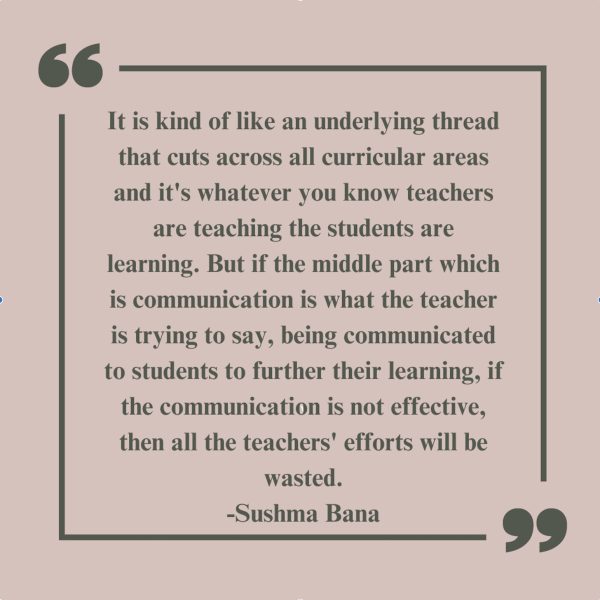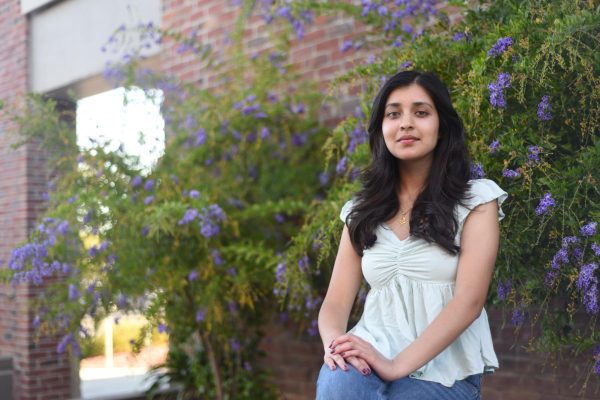FUHSD’s Professional Learning and Teacher Education (PLATE) group, which is composed of teachers and administrators and hosts meetings to instruct teachers on Professional Development (PD), and skills to aid them in teaching students, has recently decided that the district will shift from its PD classes that traditionally consisted of subject-focused skill development to a focus on durable skills such as communication, collaboration, critical thinking, problem-solving and creativity. For the 2024-2025 school year, the district will kick off this new approach by focusing specifically on communication. In this PD, teachers from all subject areas will be invited to participate in sessions led by the curriculum leads, designed to enhance communication skills in the classroom environment.
English Curriculum Lead Julia Satterthwaite supports English teachers throughout the district by developing professional development programs aimed at helping teachers foster a better learning environment in their classrooms. Satterthwaite explains that the decision to focus on durable skills arose from discussions within PLATE.
“We were getting lower numbers of teachers in terms of participation in previous PD meetings,” Satterthwaite said. “So this year, the PLATE team started looking at data and we were looking at each of the five high schools’ curriculum plans, like what we submit to the Western Association of Schools and Colleges for accreditation. In all five sites, there were common skills that every site wanted to emphasize that students get by the time they graduate. They decided we narrow it down to five skills —communication, collaboration, critical thinking, creativity, and problem-solving. So those are five things that every single site had on their school goals in their school plan, and that they’re working towards. This year we decided to start with communication PD.”
Member of PLATE Seema Tandon also discusses why and how PLATE came to the decision on the communication PD. They looked at past PDs to see which ones worked and which didn’t, further looking at the subjects targeted and concluding that they wanted a more inclusive PD.
“We were thinking about ‘why are teachers not attending sessions’ and ‘what can be something where teachers attend’ and ‘how do we do something which is more, not just subject based, but more like kind of include everybody,’” Tandon said. “So PLATE had decided to do something that is skill based. We had several skills in mind but we decided that we are going to focus on communication skills. And so during our new PD meetings that’s the approach we’re taking over there now.”

Additionally, Satterthwaite says that focusing these sessions on skills such as communication helps ensure that students explicitly learn communication in classes, rather than presuming that they will throughout the year. The upcoming communication PD will provide teachers with strategies to teach and evaluate communication skills directly.
“The problem is a lot of our teachers teach content,” Satterthwaite said. “So, students pick up skills kind of along the way, but they don’t explicitly teach how to communicate right like that. This PD aims to teach the how of the skill. And then, in terms of our evaluation of the skill, sometimes we’re not evaluating the skills either. We have to break down the skill, teach it, and then you have to figure out how you’re going to evaluate it for it to be something that the student is kind of aware that they’re doing.”
Physics and AVID teacher, Sushma Bana also believes that within the classroom itself communication is an important skill to have in the learning environment to make it more inclusive. Bana says communication allows students and teachers to understand each other better and build trust, which helps build a community and a more conducive environment.
“It is kind of like an underlying thread that cuts across all curricular areas and it’s whatever you know teachers are teaching the students are learning,” Bana said. “But if the middle part which is communication is what the teacher is trying to say, being communicated to students to further their learning, if the communication is not effective, then all the teachers’ efforts will be wasted.”

By shifting to a focus on communication PD, Satterthwaite emphasizes that the ultimate goal is that students will be able to adapt their communication styles to various contexts and be able to interact with everyone, even beyond the classroom. She believes that this skill is crucial for their success in both personal and professional settings.
“We want kids to be able to leave high school, knowing how to communicate an email, in person, text, in social media, and overall in a variety of different formats, so that no matter the circumstance that you’re put in, you would be able to communicate,” Satterthwaite said. “One part of that might be, for example, outside of this place — if you’re communicating with your friends, you might use a certain syntax, but when you go to your interview at Chipotle to see if you can get a job there, you have to shift that communication, it’s just teaching them those little things.”











